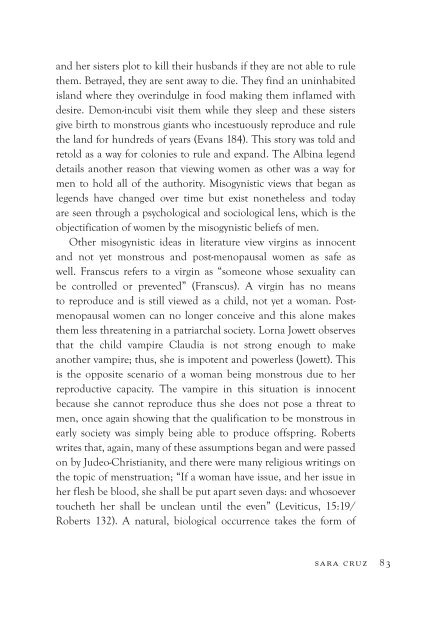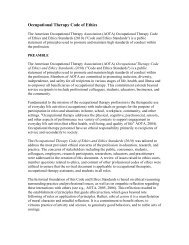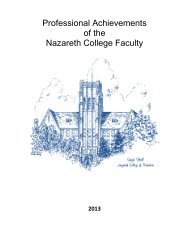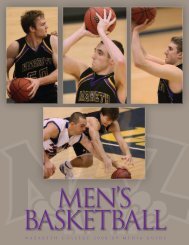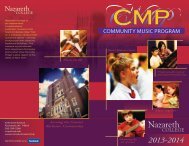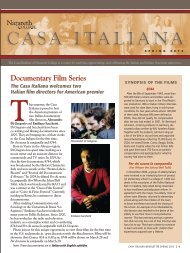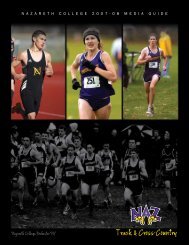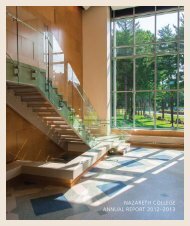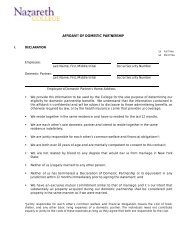Afternoon of Alterity - Nazareth College
Afternoon of Alterity - Nazareth College
Afternoon of Alterity - Nazareth College
Create successful ePaper yourself
Turn your PDF publications into a flip-book with our unique Google optimized e-Paper software.
and her sisters plot to kill their husbands if they are not able to rulethem. Betrayed, they are sent away to die. They find an uninhabitedisland where they overindulge in food making them inflamed withdesire. Demon-incubi visit them while they sleep and these sistersgive birth to monstrous giants who incestuously reproduce and rulethe land for hundreds <strong>of</strong> years (Evans 184). This story was told andretold as a way for colonies to rule and expand. The Albina legenddetails another reason that viewing women as other was a way formen to hold all <strong>of</strong> the authority. Misogynistic views that began aslegends have changed over time but exist nonetheless and todayare seen through a psychological and sociological lens, which is theobjectification <strong>of</strong> women by the misogynistic beliefs <strong>of</strong> men.Other misogynistic ideas in literature view virgins as innocentand not yet monstrous and post-menopausal women as safe aswell. Franscus refers to a virgin as “someone whose sexuality canbe controlled or prevented” (Franscus). A virgin has no meansto reproduce and is still viewed as a child, not yet a woman. Postmenopausalwomen can no longer conceive and this alone makesthem less threatening in a patriarchal society. Lorna Jowett observesthat the child vampire Claudia is not strong enough to makeanother vampire; thus, she is impotent and powerless (Jowett). Thisis the opposite scenario <strong>of</strong> a woman being monstrous due to herreproductive capacity. The vampire in this situation is innocentbecause she cannot reproduce thus she does not pose a threat tomen, once again showing that the qualification to be monstrous inearly society was simply being able to produce <strong>of</strong>fspring. Robertswrites that, again, many <strong>of</strong> these assumptions began and were passedon by Judeo-Christianity, and there were many religious writings onthe topic <strong>of</strong> menstruation; “If a woman have issue, and her issue inher flesh be blood, she shall be put apart seven days: and whosoevertoucheth her shall be unclean until the even” (Leviticus, 15:19/Roberts 132). A natural, biological occurrence takes the form <strong>of</strong>sara cruz 83


